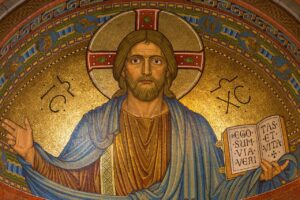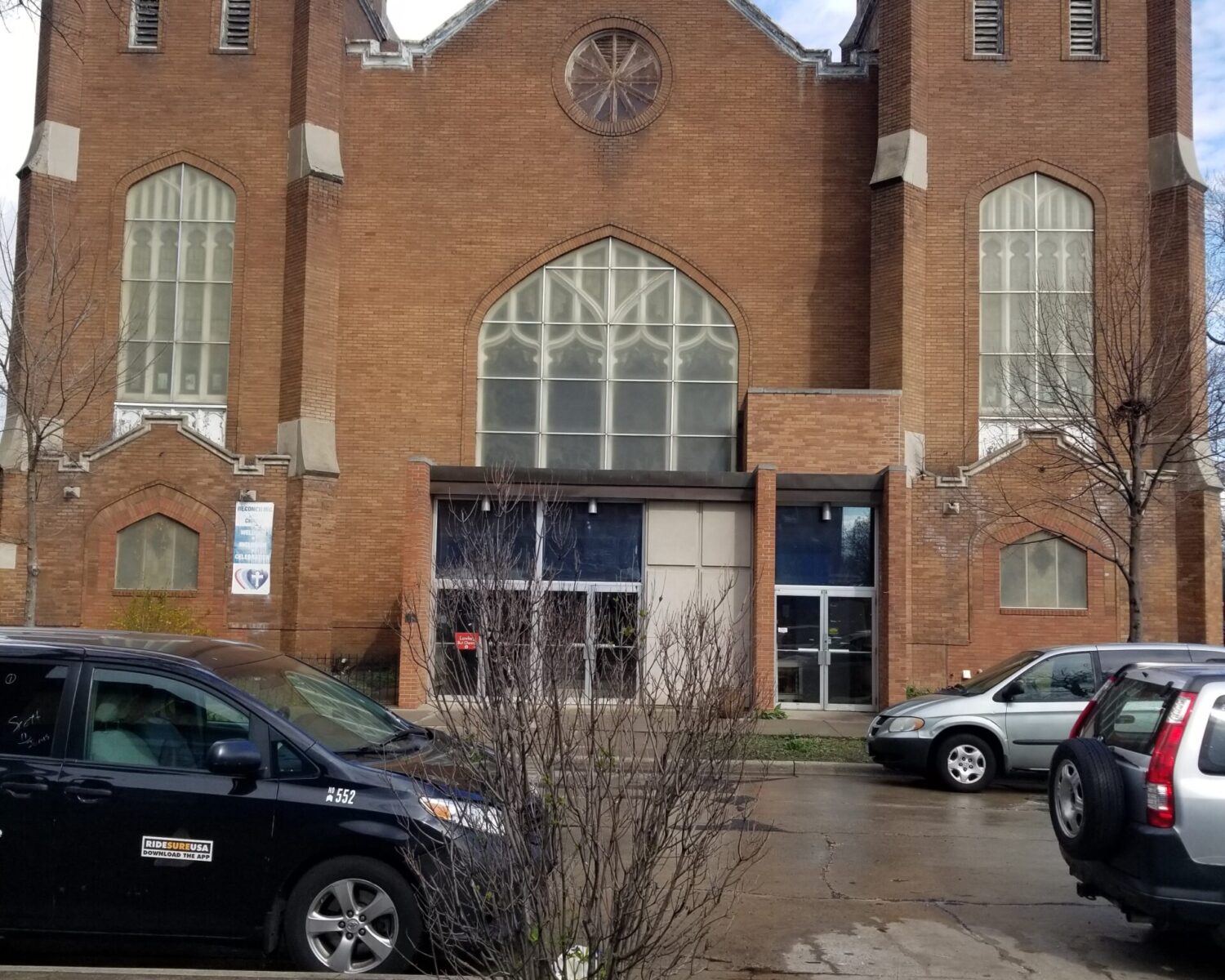BY ED FELIEN
I grew up Roman Catholic. St. Helena’s Church in South Minneapolis. I was a good Catholic, went to Mass, took Communion. It fell apart for me in my freshman year at the U. I started reading James Joyce, “Portrait of the Artist as a Young Man.” Then Orwell, Eliot and Lawrence.
 But I still loved Jesus, the perfect soul, the guiding light of my childhood.
But I still loved Jesus, the perfect soul, the guiding light of my childhood.
I started reading Roman and Middle Eastern history. I learned about how Judas Maccabee drove out the Greeks, fighting them with guerrilla tactics for almost 20 years until in 142 BCE the Greeks gave up and left. The Greeks did achieve one small lasting success, though, in changing the name of the territory from Philistia to Palestine—so the people were no longer Philistines but Palestinians.
The Romans came through in 63 BCE, and the Hasmonean dynasty agreed to support Roman rule, because they knew they could profit from it. Herod supported the Romans, and he became the client king or governor of Israel. Herod’s son, Herod Antipas, succeeded his father and ruled during Jesus’s lifetime.
There was resistance to Rome.
The Jewish-Roman Civil War began in 66 CE and ended with the mass suicide at Masada in 73 CE. It began in Caesarea, about 40 miles from Nazareth. A gang of young men got into fights with the Greek colonists who had remained rich and powerful through their cooperation with the Romans. The young men were called Zealots.
I like to think they grew up in Nazareth with Jesus and remembered him. He was their hero. He had stood up to the Roman authorities and he had even driven their comprador government out of the temple.
“Then Jesus went into the temple of God and drove out all those who bought and sold in the temple, and overturned the tables of the money changers and the seats of those who sold doves. And He said to them, it is written, ‘My house shall be called a house of prayer,’ but you have made it a den of thieves.” Matthew 21:12-13
He had come down from the Mount of Olives, riding a donkey, and the crowd spread cloaks and palms before him. It was a great multitude. They cried out, “Hosanna to the Son of David! Blessed is he who comes in the name of the Lord! Hosanna in the highest!”
“Blessed is the King who comes in the name of the Lord! Peace in heaven and glory in the highest!” And some of the Pharisees in the crowd said to him, ‘Teacher, rebuke your disciples. ’He answered, ‘I tell you, if these were silent, the very stones would cry out.’” Luke 19:37-40
He led a great crowd into the temple, and they threw out the elitists who had collaborated with Rome, and he re-consecrated the temple for all the people of Israel.
And the people proclaimed him king.
It was a daring act of insurrection.
But soon after, the sun was beginning to set. People were rushing home to prepare the Passover meal. They were satisfied that they had changed their world.
But Jesus must have known this Passover would be his last supper.
“When their supper was done, Jesus turned to his friends, his comrades, his brothers, and said, ‘When I sent you out with no moneybag or knapsack or sandals, did you lack anything?’ They said, ‘Nothing.’ He said to them, ‘But now let the one who has a moneybag take it, and likewise a knapsack. And let the one who has no sword sell his cloak and buy one. It is written: “And he was numbered with the transgressors”; and I tell you that this must be fulfilled in me. For what it written about me has its fulfillment.’ And they said, ‘Look, Lord, here are two swords.’ And he said to them, ‘It is enough.’” Luke 22:35-53
The Zealots were known to carry two swords—a short one (dagger) and a long one.
Jesus was arrested by the Roman authorities, tried for insurrection, convicted by the same elitists he had tried to overthrow, and he was crucified.
I have a very personal love and understanding of Jesus. I see him as a man, just like me. I think his hope was beautiful—his dream of a world where the meek would inherit the earth, where there would be enough food for everyone, and peace.
According to Acts 2:44, the believers shared everything they had, including their possessions and goods, and sold them to help those in need. Acts 4:32 states that the believers were “one in heart and soul” and “shared everything they owned.” No one claimed that any of their possessions was their own, but they shared everything they had.
This was the spirit of Jesus. From each according to their ability. To each according to their needs. It’s not in Marx and Engels’s Communist Manifesto. It’s way too radical for the Communist Manifesto.
It was the founding faith of America: The Mayflower Compact in 1620 and the Guilford Covenant in 1639 called for communal sharing.
It was the spirit of Oleanna: “That’s where I want to be, than to live in Norway and wear the chains of slavery.”
There were thousands of utopian religious communes in America in the nineteenth century: Anabaptists, Mormons, Mennonites. The Amish are still with us, with their gentle, old-fashioned idealism.
There was a revival, of sorts, of this notion of communal sharing with the hippie communes of the 1960s. In Minneapolis, some of those hippie-neo-Christians started the food cooperatives.
But a peaceful world where the meek shall inherit the earth is not possible as long as there are bullies and oppressors, and that’s why Jesus worked to end Roman oppression.
The resistance movement against Rome didn’t end with the suicides at Masada. It went underground—literally, in the catacombs under Rome. It spread wherever Rome went in Europe.
The Romans were quite good at militarily conquering a nation and then Romanizing their religion. They easily accepted Greek gods and goddesses and gave them Roman names. They changed indigenous religions in North Africa and made them universal and mandatory and subservient to Rome.
So it was not a difficult trick for Constantine the Great, the emperor of Rome, to rewrite the accepted stories of Jesus at his Council of Nicea in 325 CE and create the Roman (as in ROMAN) Catholic (as in UNIVERSAL) Church and impose it with vigor on all of Europe.
Of course, the Roman Catholic Church, in defending the existing order, was in direct juxtaposition to the teachings of Jesus.
[My feminist wife loved the story, but she was upset that I said nothing about Boudica, the great Celtic warrior queen who fought against Roman oppression in early England. Boudica burned down London. Her rebellion came out of that same Jesus impulse, a tribal uprising to resist an oppressor.]






















